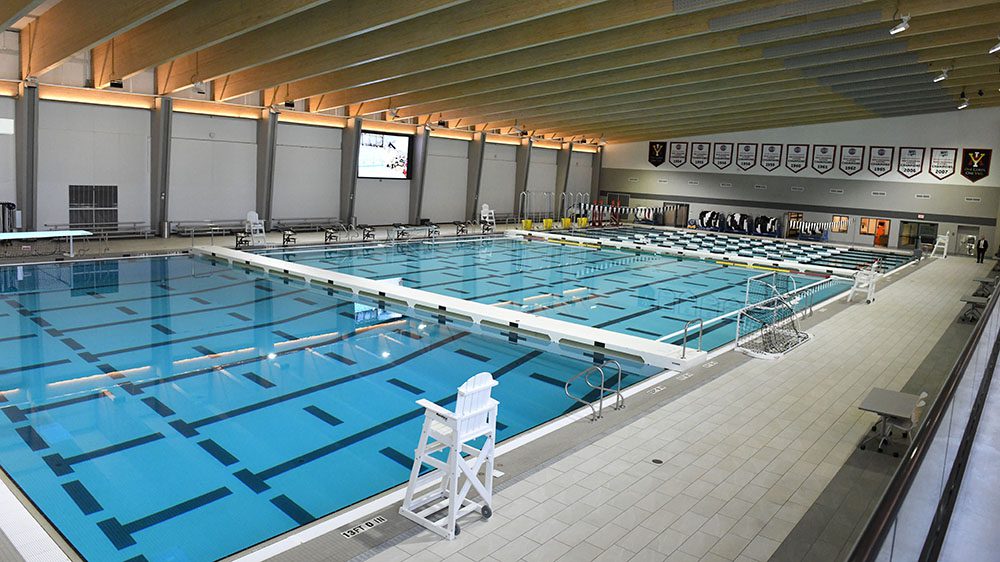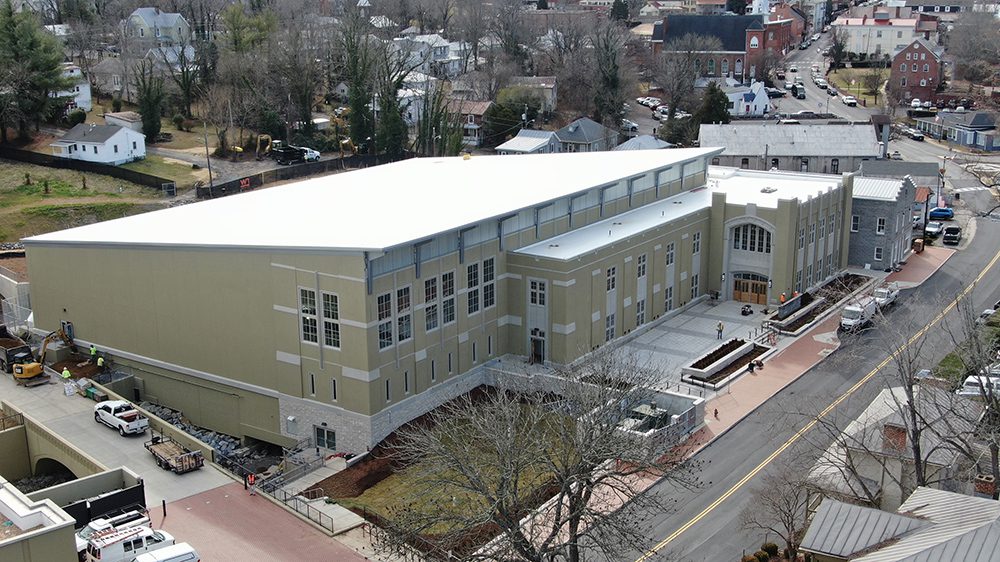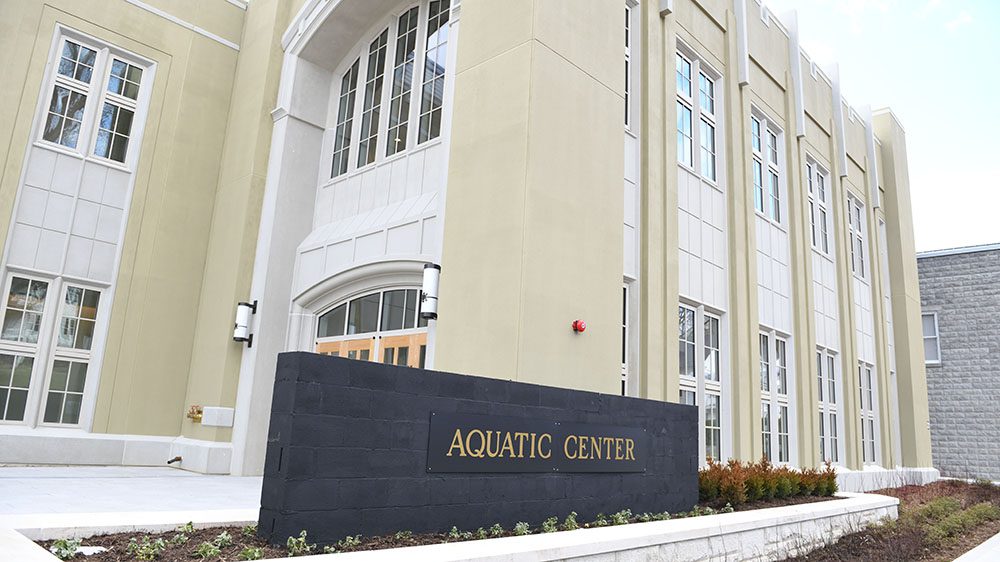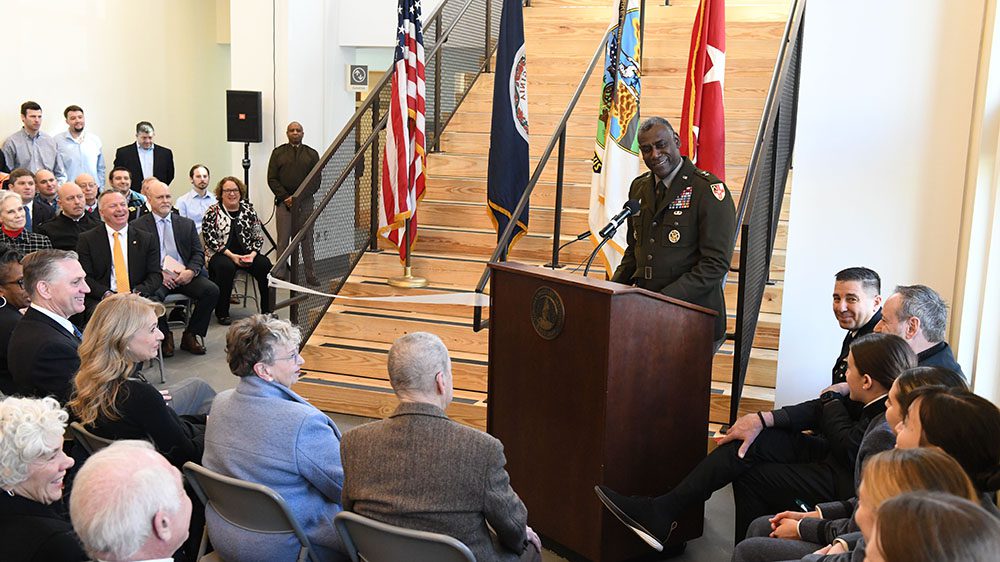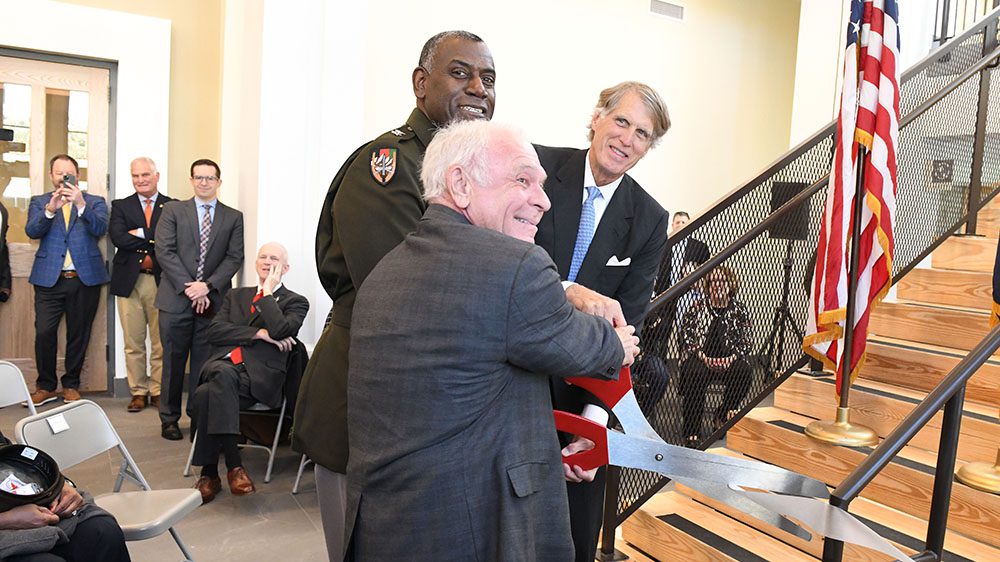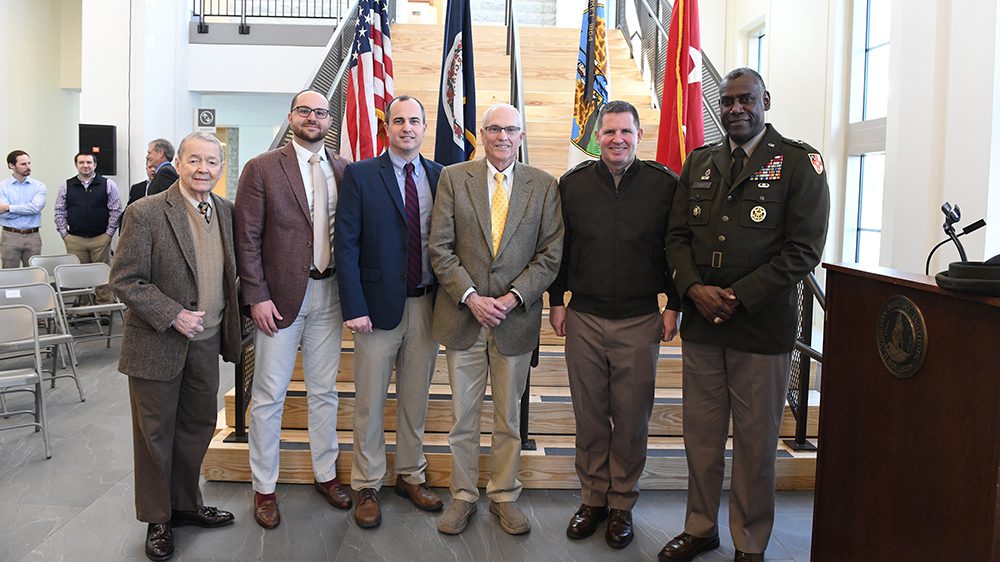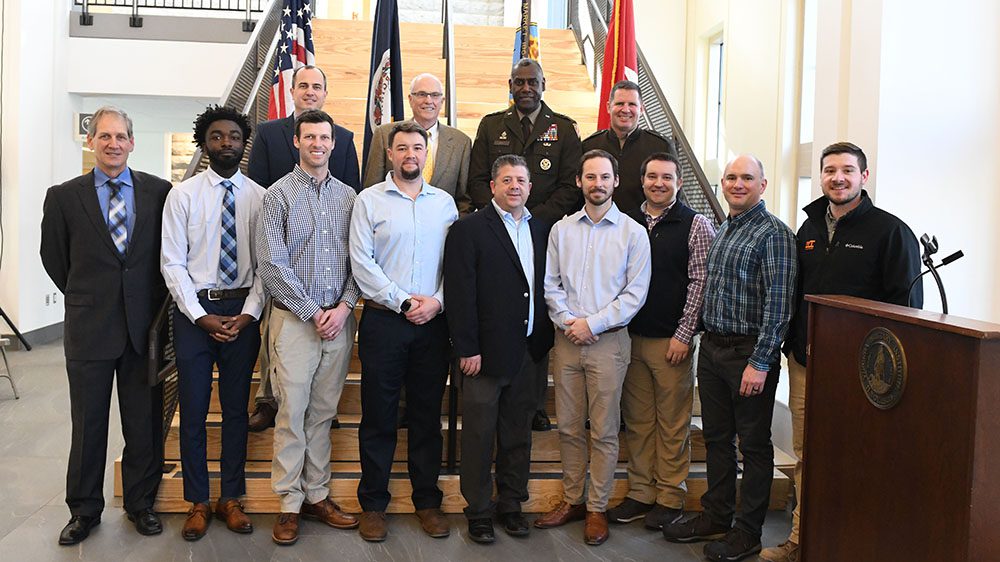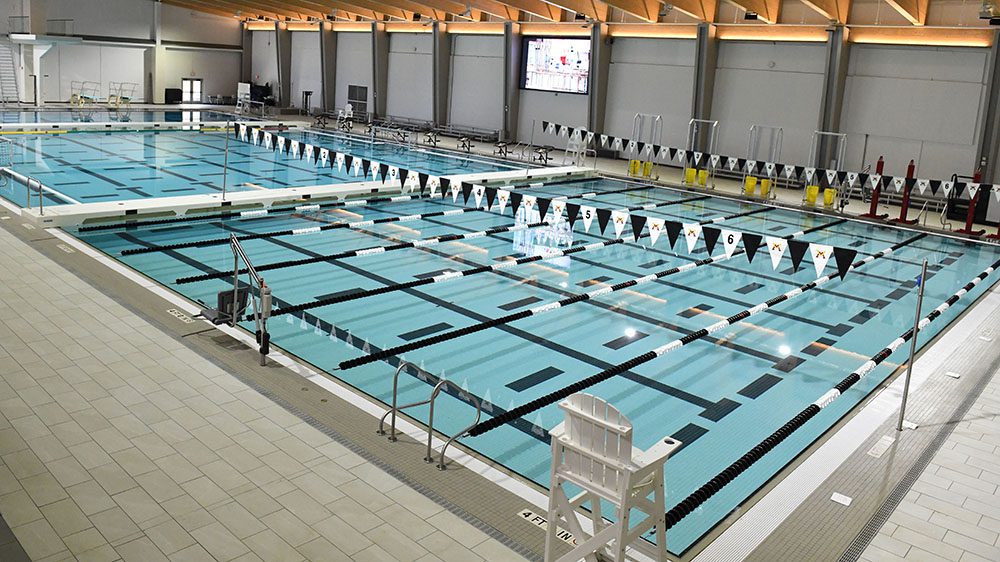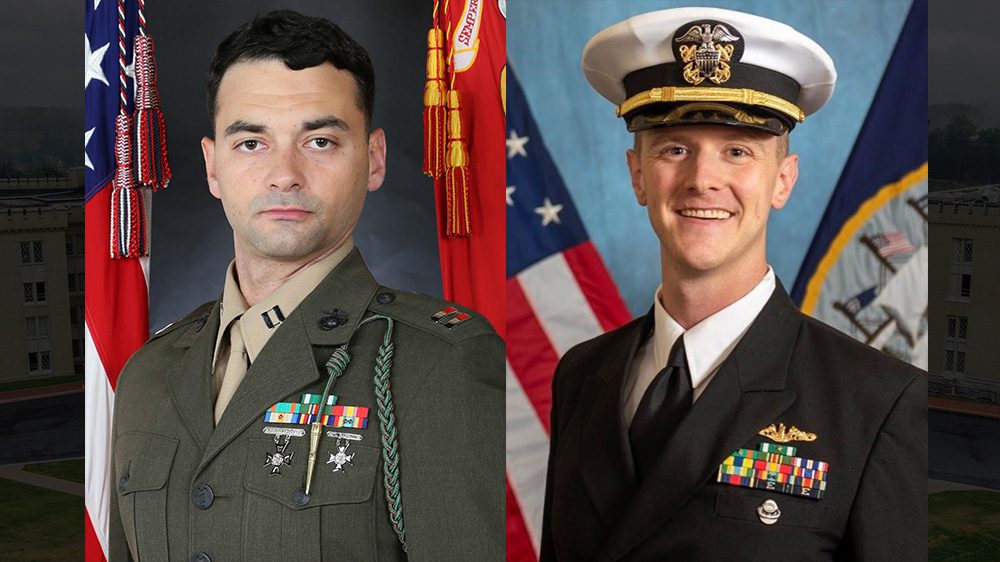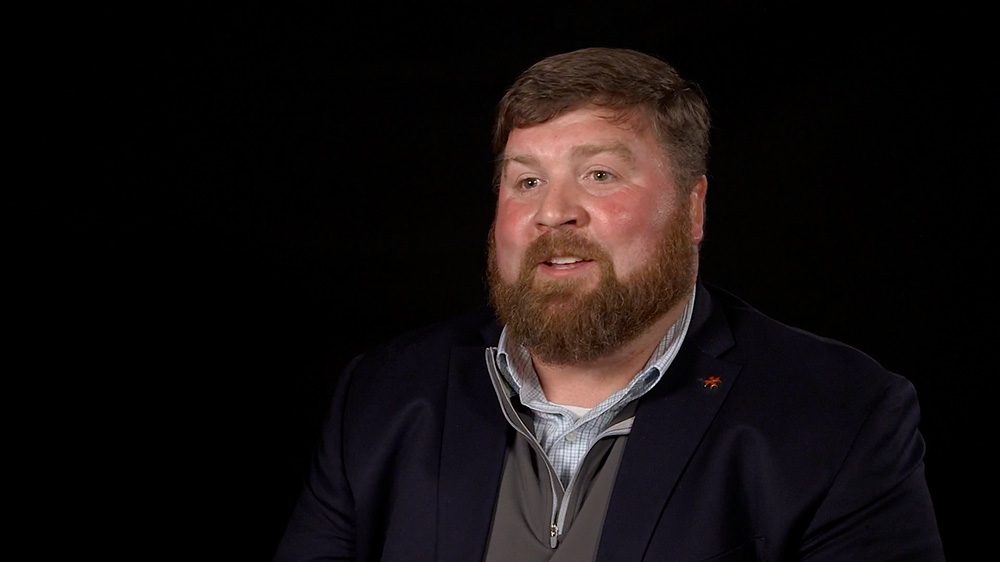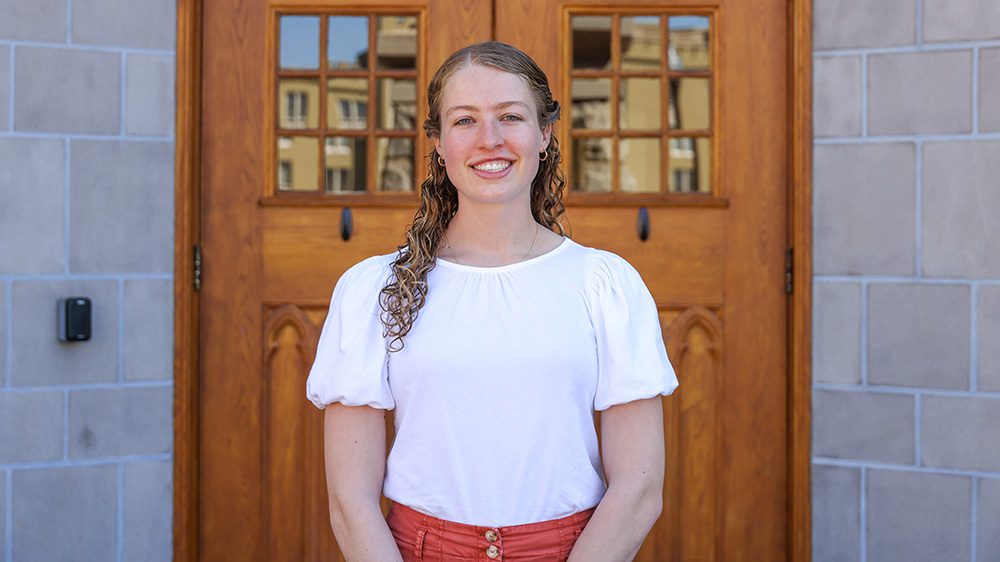The ribbon cutting and dedication of VMI’s Corps Physical Training Facility Phase III, the Aquatic Center, took place Jan. 27, 2023. Maj. Gen. Cedric T. Wins ’85, superintendent, celebrated the event with local dignitaries and special guests, including Frank Friedman, mayor of Lexington; Lt. Gen. John W. Knapp ’54, former VMI superintendent; Thomas H. Zarges ’70, Alumni Agencies Board of Directors chairman; Thomas “Tom” Watjen ’76, Board of Visitors president; the VMI Board of Visitors; alumni; cadets; and many of those who had a hand in the project for the special event.
Lt. Col. Daren Payne ’90, deputy director for engineering and construction, welcomed everyone and invited Wins to the lectern, who noted that it was almost 100 years ago to the day that VMI opened its first indoor swimming pool in Memorial Hall. “As opportunities expanded and demand increased, VMI leadership saw fit to build a new pool in 1969, the same one we have used through today,” said Wins.
Wins went on to describe the many positive circumstances that occurred during the 21st century that created a demand for a new aquatic center, such as the growth and size of Corps of Cadets, the inclusion of women, growth in athletic offerings, additional course offerings for water training, and expanded training for ROTC programs. “With the opening of this venue, we continue to meet the demands of the top-rated education VMI provides for all of its cadets, both academically and athletically,” he said.
Wins expressed gratitude to all those who took part in the construction of the facility, given the constraints of the site and the overall pace. He thanked the Commonwealth of Virginia for the majority of the funding, as well as their continual acknowledgment of the value of a VMI education and the impact VMI has on the local economy. He extended his sincere thanks to the long-standing philanthropic support of many alumni.
Wins, Zarges, and Watjen held the scissors together and cut the ribbon, officially opening the facility, after which the crowd was invited to tour.
Construction on the $44 million facility began in December 2020, and it contains an indoor 50-meter swimming pool that holds 800,000 gallons of water. It has two 1-meter springboards, two 3-meter springboards, and a 5-meter dive platform, plus seating for 570 spectators. The pool is large enough to be divided into three sections, making diving, water polo, and competitive swimming possible simultaneously. NCAA teams will be able to use it for practice and competition, and ROTC and the Department of Human Performance and Wellness will use it for training, as VMI requires all students to take one semester of swimming. Cadet clubs, like the scuba club, will also find it valuable. High water entry exercises, which had been done in the Maury River, can now be conducted indoors. The pool is a “smart pool” in that the chemical balance and temperature are all regulated by a computer. Various sensors are located throughout the system in the inner workings of the pool, and as water flows past the sensors, messages are transmitted to the computer. If the pH or temperature needs correcting, it is done by the computer.
Cadet Katie Lloyd ’23, captain of the water polo team, is thrilled to see the opening of the new facility before she graduates. “I can’t wait to get into the water with all my teammates. To be able to play in such a beautiful pool will do so much to enhance our competitive spirit and team morale. It will be a wonderful attraction in recruiting new polo team members from around the country. But more than that, this pool is for the entire Corps of Cadets. It will benefit everyone since every cadet is trained in water,” she said.
Approximately three-quarters of the total cost of the facility was included in the biennial budget, and that funding remained in the budget as it passed through both houses of the General Assembly. The remainder of the overall cost of the project came from private donations. The completion of the Aquatic Center brings an end to the phased approach for athletic facility renovations and additions that began in 2014, which included renovations to Cormack and Cocke Halls and the building of the Corps Physical Training Facility, which opened in fall 2016. Each building provides significant and enhanced indoor fitness training elements for cadets, as well as home to the Institute’s NCAA track and wrestling teams. The buildings also offer a venue for ROTC and individual cadet physical training in inclement weather. Altogether, the three phases of the Corps Physical Training Facility cost $164 million.
The Knights of Pythias building, also known as the American Legion building, a structure with historic ties to Lexington’s African American community, has been renovated and is connected to the Aquatic Center via a glass walkway. The main level is used as coaches’ offices and a conference room, and the upper level is used for classrooms.
